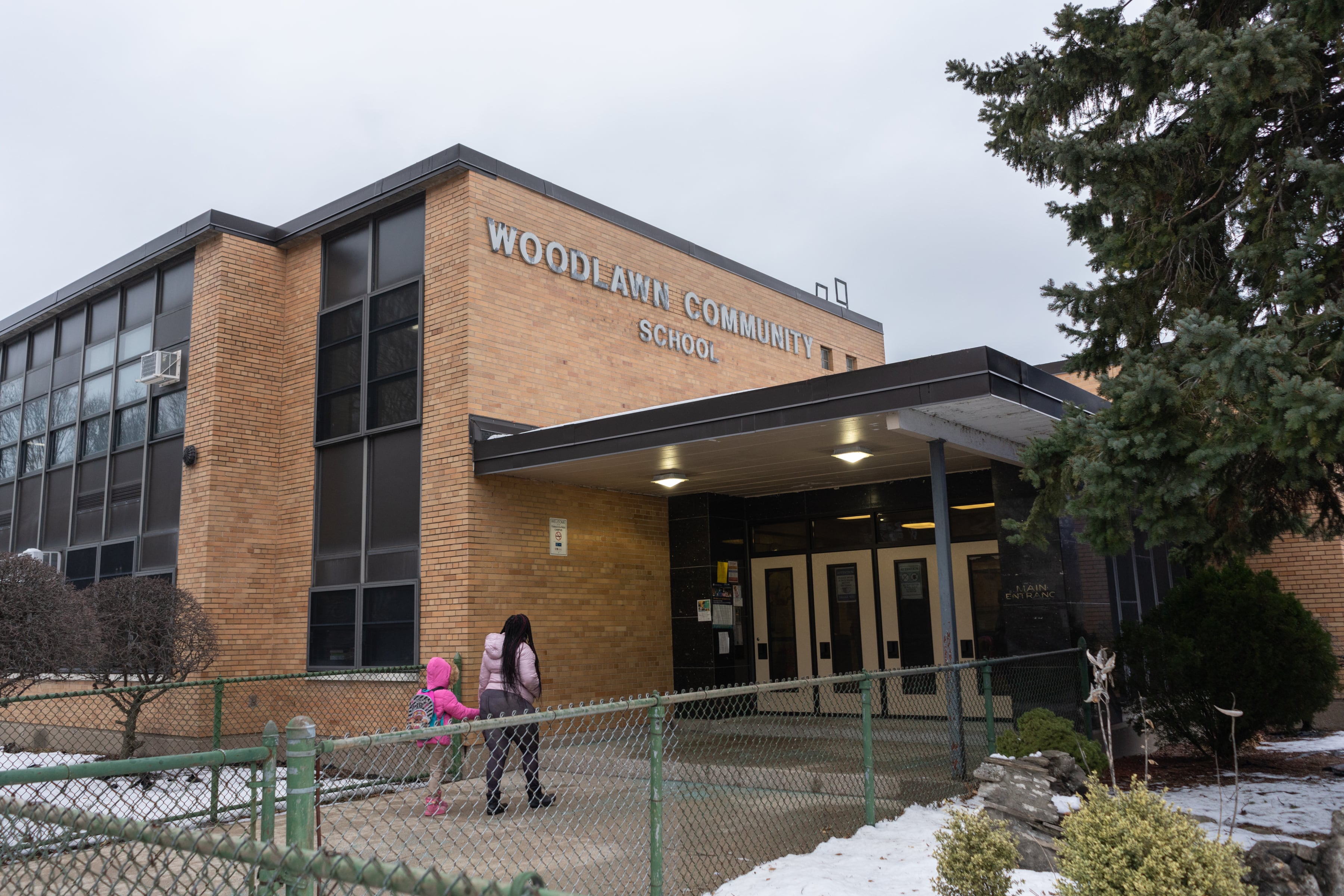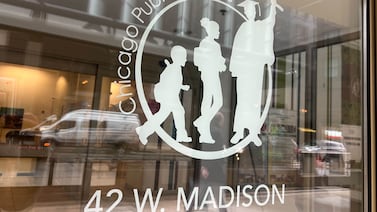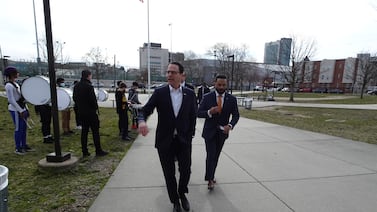The Chicago Board of Education is set to vote this week to renew its COVID-19 testing contract for $85 million – a $25 million increase over the initial contract awarded last year.
The proposed renewal with Fisher Scientific comes despite a rough year for the optional school-based testing program. The effort was plagued by missed deadlines, staffing problems, and a winter work stoppage sparked by teachers’ concerns over COVID-19 mitigations, including testing.
Using its emergency spending powers, Chicago Public Schools awarded Fisher Scientific a $60 million contract last summer to do school-based testing for staff and students. But according to purchasing documents posted online, the district has paid Fisher Scientific more than $78 million since August 2021. Wednesday’s agenda confirms the increase.
It’s not clear what is driving the increased costs. A Chicago Public Schools spokesperson said the initial contract did not account for changes in how students were tested during surges in COVID-19 positivity rates.
Weekly COVID-19 surveillance testing is an important public health measure, particularly in areas where vaccination rates are low. A Chalkbeat Chicago analysis from March found students at schools on the South and West sides were less likely to be vaccinated than those on the North side. In places where vaccination rates lag, testing can be an effective way to monitor the spread of the virus and prevent outbreaks.
The testing program got off to a slow start last school year, with just 7% of the district’s student body signing up as of the end of October. In some schools, less than five students consented to the weekly nose swabs. Then, over winter break, an effort to provide students with at-home test kits got snarled by seasonal shipping delays as test kits piled up at drop boxes.
As cases of the omicron variant surged in January, teachers grew concerned that school-based COVID-19 mitigations were not stopping the virus from spreading. After Chicago Teachers Union members voted to switch to remote learning, school was canceled for five days as the district and the union negotiated.
One of the key agreements in the settlement reached to return to in-person learning was a promise to get at least 10% of students at every school to sign up for weekly COVID-19 testing.
By mid-February, about 35% of the district’s students had opted in to the testing program. Around that time, WBEZ reported on the $60 million deal with Fisher Scientific and noted the company agreed to credit the district $1.35 million toward future testing costs and services. According to WBEZ, Fisher did not score highly during the bidding process either.
A call to the Fisher Scientific representative listed on the proposal to renew the contract went unanswered Monday.
The COVID-19 testing program paused at the end of the school year, but started back up during summer school. Numbers obtained by Chalkbeat Chicago last week indicated fewer than 5% of students were being tested during summer school.
The Board of Education is scheduled to vote on the $85 million contract for the 2022-23 school year on Wednesday.
Becky Vevea is the bureau chief for Chalkbeat Chicago. Contact Becky at bvevea@chalkbeat.org.







